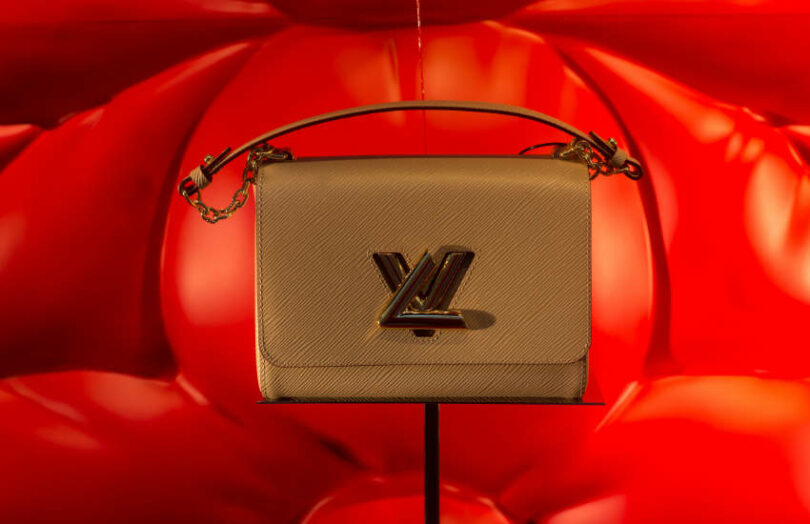Last week Bloomberg did a write-up about the Aura luxury blockchain consortium founded by LVMH. It boasts members such as Prada, Richemont’s Cartier, OTB (Diesel, Maison Margiela) and Mercedes. While the consortium’s activities include tracking sustainability and providing NFT technology, the original motivation was to address counterfeiting.
On the face of it, Bloomberg appeared to blow a hole in that rationale by suggesting that it’s possible to clone the trackable NFC chips attached to luxury items. We plan to explore that. And in unrelated news, yesterday the consortium announced a new CEO in a somewhat unorthodox manner.
The counterfeiting problem
Many years ago I sat waiting for a plane at Nice airport, watching the various police checks. In addition to the usual passport and customs control, the customs gendarmes had an additional anti-counterfeiting task – to find out whether the Louis Vuitton handbags passing through were knockoffs.
That doesn’t happen unless it’s a big problem. Estimates of the annual cost of luxury counterfeiting range from $600 billion to several trillion.
This is relevant because Aura is not a hyped blockchain project looking for a purpose. Luxury counterfeiting is a problem desperately looking for a solution. Blockchain can be part of a strong solution, provided it’s done right.
The killer part of the Bloomberg article was a question from a blockchain expert: “What happens if I pull that NFC chip out of the bags, make 10,000 copies and put them in 10,000 fake bags? Who owns the real bag?”
Blockchain is never going to prevent someone from making 10,000 copies of a bag. How on earth would it? Likewise, when people claim blockchain is a ‘single source of truth’, of course, it’s not. If someone has the authority to write to a blockchain, they can just as easily write garbage as ‘truth’. The blockchain benefit is that the data is hard (not impossible) to tamper with.
So the question is, can the Aura NFC chips be cloned?
Given the scale of the counterfeiting problem, we have a hunch that Aura might have spent more than five minutes thinking about these sorts of issues. So we thought we’d give them another go at answering. However, the response was a little vague.
The Aura response on NFC chip cloning
“In most of the cases, the combination of an encrypted NFC chip on the product, pointing towards a unique page and a unique token on the Aura blockchain, makes it the ideal system to prevent counterfeits,” Aura said in a statement.
“Different security layers are added between the moment the customer scans the NFC chip and the moment they land on a unique and customized landing page of their product. Through our different ecosystem partnerships, Aura Blockchain Consortium ensures the highest standard of security for the different formats our member brands choose to integrate the blockchain, and continue to develop our technologies to combat this.”
In fairness, if Aura outlines precisely what it’s doing, it might make it easier for counterfeiters.
We did a little research and found that most (not all) NFCs can be cloned. Especially hotel room keys (yikes). But there are ways to detect NFC clones. We have no idea whether Aura is using these methods.
It is possible to fight fake NFC chips
For example, when the NFC chip is scanned, the scanner can write a code back onto the chip and the blockchain. When someone scans a different bag with the same NFC identity, the code from the previous scan will be missing. That will flag any handbag with the cloned NFC ID as counterfeit. Sure, they won’t know which one is the original without physically inspecting them.
As an aside, NFC chips are not the only way to link physical items to blockchains. For example, sustainability applications often use invisible inks or DNA markers to detect the materials used in production.
So it is possible to link physical items and their digital twins. And anti-counterfeiting can work with blockchain. It’s also worth responding to the ‘why blockchain?’ question. Depending on the use case, a centralized database might work just fine.
If you use a centralized database, the luxury brand is more vulnerable to counterfeiting involving insiders or hackers targeting a single database. Using blockchain doesn’t eliminate that possibility, but narrows the opportunities. That’s one advantage, there are potentially others.
The new CEO announcement
We asked whether the Bloomberg article and social media response was related to the appointment of the new CEO. The response was that the leadership change had been in the works for a while. Leading a consortium is not for the faint-hearted and is exponentially harder than running a company.
The press release, using a French word, was a little ‘bizarre’.
The new CEO and General Secretary is Romain Carrere. The announcement said the new CEO has “over 15 years experience as a tech entrepreneur, Romain Carrere has dedicated his effort to advising web3 start-ups.” His LinkedIn profile only shows the position of Aura CEO.
So we emailed Aura asking which companies he founded and the names of the web3 firms he advised. The response was that there was nothing further to share at this time. That was unexpected.
A little Google sleuthing uncovered that he started an online e-commerce printer cartridge firm. The outgoing leader had a career in luxury.
Given it’s just a change of leadership, why is it interesting? We’re aware of two other prestigious blockchain consortia that both changed leaders at a similar stage – for the growth phase. In both cases, the new leader was not a sector insider. In one case, he was a technical entrepreneur with a relevant resumé. Both of these consortia – we.trade (trade finance) and B3i (insurance) – shut down last year. Make that three if you count TradeLens, which had a relatively new leader.
That said, every organization is unique. So doing pattern matching like this is not entirely appropriate.
To date, Aura has done remarkably well to be able to bring together and retain these competing brands. And we suspect it has a stronger product-market fit than the other consortia. So we wish Mr. Carrere well in leading Aura to great success.






